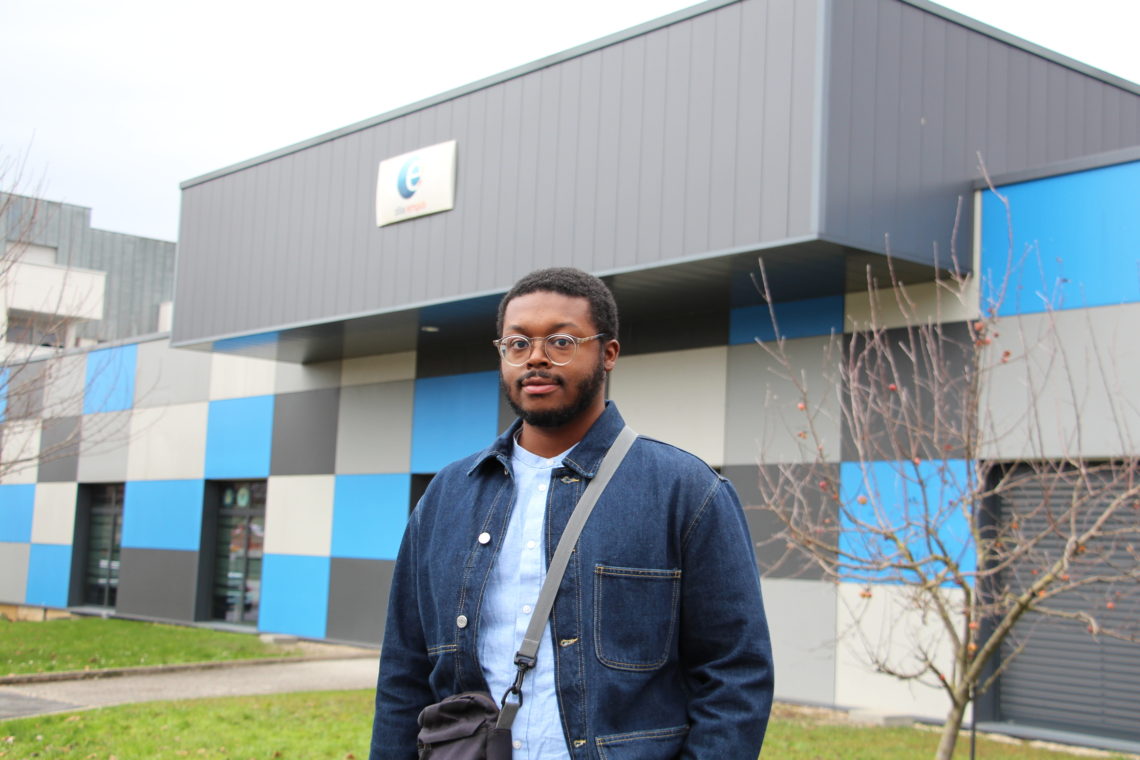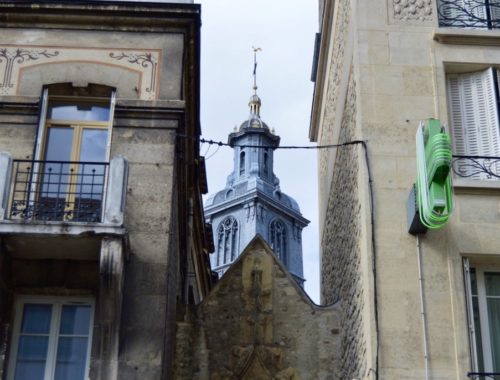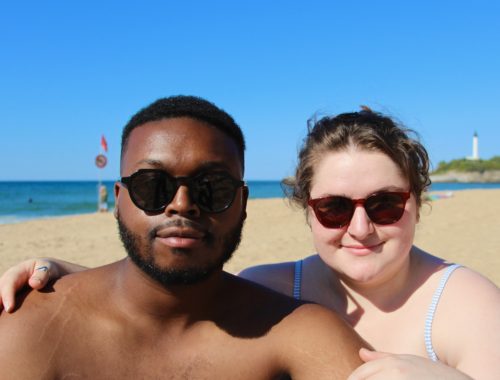
How to Get French Unemployment Benefits After an Alternance as a Foreigner: My Personal Experience
I completed the second year of my master’s degree in Gestion de Production, Logistique, Achats parcours Logistique Durable et Management de la Supply Chain at the Université de Reims Champagne-Ardenne en alternance. Simply put, I participated in a work-study internship that had me alternate between one week of classes and one week of work throughout the entire school year. At the end of my alternance contract, I became eligible for unemployment benefits as a foreigner. Keep reading to learn about the entire process – from signing up with Pôle emploi, to attending my in-person appointment, to receiving my first unemployment payment, and everything in between.
Note: Please keep in mind that verified French governmental sources are the best place to get information about your rights in France. This article recounts my personal experience getting unemployment benefits, and any advice should be considered unofficial.
Table of Contents
➤ French Unemployment Benefits
➤ Do I Qualify for Demandeur d’emploi Status?
➤ Do I Qualify for ARE?
➤ Required Documents for Pôle emploi
➤ What Happens at the Pôle emploi appointment?
➤ My Complete Unemployment Benefits Timeline
French Unemployment Benefits
The unemployment payments addressed in this article are called Allocation chômage d’aide au retour à l’emploi (ARE), or the Return-to-Work Allowance. Pôle emploi, France’s public employment service, manages this type of financial aid. Intended for people with demandeur d’emploi (job seeker) status, the aid comes in the form of tailored monthly payments. Not all foreign students qualify for ARE, but with proper research, preparation, and patience, you may be able to receive French unemployment payments after your work contract ends.
Do I Qualify for Demandeur d’emploi Status?
The first step in receiving unemployment payments is qualifying for demandeur d’emploi status. As a foreigner in France, I had to meet five criteria:
- Be looking for a job
- Be of legal working age
- Be physically able to work
- Have a physical address in France
- Hold a residence permit that grants working rights and allows sign-up with Pôle emploi
Pôle emploi encourages potential demandeurs d’emploi to sign up the day after they no longer have a job. However, at the end of my alternance contract, I held a carte de séjour pluriannuelle mention étudiant, which did not allow sign-up with Pôle emploi. I was unsure whether I should try to sign up with Pôle emploi as a demandeur d’emploi with a residence permit that did not meet the requirements (risking rejection), or wait until I was in possession of a residence permit that did meet the requirements (risking delaying payments).
I called Pôle emploi to resolve this problem and spoke to an agent who told me I should be able to sign up as a demandeur d’emploi even though my current residence permit did not meet the requirements. However, I was skeptical of the agent’s recommendation given the information on the Pôle emploi website and feedback from other foreigners who had been through the process before. Because I didn’t want to deal with potentially having my application rejected, I decided to wait to sign up until I applied for a residence permit that does meet the requirements – in my case, the recherche d’emploi ou création d’entreprise residence permit (RECE).
Do I Qualify for ARE?
On top of signing up as a demandeur d’emploi, I also had to qualify for ARE. To do so, I had to meet seven criteria:
- Have worked for at least six months in the last two years
- Have involuntarily lost my job
- Have registered with Pôle emploi within the year following the involuntary loss of my job
- Be actively looking for a job
- Have not reached the age and number of quarters required for a full pension or do not benefit from early retirement
- Be physically able to work
- Have a physical address in France
As a recent graduate of a master’s degree en alternance, I checked all the boxes. I had been employed for a year, I completed a fixed-term contract that my employer did not renew, I signed up with Pôle emploi within the time constraints, I was actively looking for work, I was nowhere near retirement, I was physically able to work, and I was living in France.
Note that there was no separate application process for ARE – the basic questions I answered while signing up for Pôle emploi as a demandeur d’emploi told the agents what payments I was eligible to receive.
Required Documents for Pôle emploi
Just like with any other French administrative process, I needed to gather paperwork for both my online registration for Pôle emploi and my in-person appointment. I had to submit the following documents.
Online Registration Documents
Titre de séjour (Residence permit)
- At the time, my residence permit was a récépissé for the RECE. I uploaded a scan of this document to the Pôle emploi website.
Attestation(s) employeur destiné à Pôle emploi (Pôle emploi certificate)
- I uploaded scans of the Pôle emploi certificates from my French employers.
Bulletin de salaire (Pay slip)
- I uploaded a scan of the last pay slip from my alternance to the Pôle emploi website.
In-Person Appointment Documents
Curriculum vitae à jour (Updated CV)
- I printed my most recent CV in French and English and brought them to the appointment.
Tout document présentant votre formation et votre expérience (Any document detailing your education and experience)
- I didn’t bring any additional documents to the appointment.
What Happens at the Pôle emploi appointment?
I arrived to my local Pôle emploi five minutes before my scheduled appointment time and signed in on a touch screen kiosk before sitting down in the waiting area. My Pôle emploi agent called me back to a private room and asked about my work history, my education, and my job expectations while logging my responses on the computer. These responses made up my Projet personnalisé d’accès à l’emploi (PPAE), or Personalized Job Access Plan. My agent explained the benefits available to me through Pôle emploi and gave me tips on finding a job including cities to target, trainings to complete, websites to use, workshops to consider, and more. In all, the appointment lasted around half an hour and was painless.
My Complete Unemployment Benefits Timeline
- August 19, 2022: I call Pôle emploi to ask whether I could sign up as a demandeur d’emploi before holding a qualifying residence permit.
- August 31, 2022: I complete my fixed-term alternance contract that my employer did not renew.
- September 9, 2022: My previous alternance employer provides my attestation employeur destiné à Pôle emploi.
- October 13, 2022: I have my appointment to apply for the RECE at the Sous-Préfecture de Reims and am granted a récépissé. I sign up with Pôle emploi as a demandeur d’emploi and provide them with as many of the required documents as I had at the time.
- October 14, 2022: Pôle emploi gives me four in-person appointment options. I choose the one most convenient for my schedule.
- October 24, 2022: My previous Teaching Assistant Program in France (TAPIF) employer provides my attestation employeur destiné à Pôle emploi. I upload this document to the Pôle emploi website.
- November 4, 2022: My previous employer provides my attestation employeur destiné à Pôle emploi. I upload this document to the Pôle emploi website. I verify that I am still seeking a job on the Pôle emploi website, a task that I must complete monthly.
- November 8, 2022: Pôle emploi confirms my monthly job seeker status verification. An agent asks me to upload my last pay slip from my alternance to the Pôle emploi website, and I do so.
- November 9, 2022: I receive my first unemployment payment.
- November 14, 2022: I attend my in-person meeting at my local Pôle emploi. The agent creates my PPAE.
- November 15, 2022: Pôle emploi sends me a synthèse entretien (appointment summary) and a notification d’élaboration du PPAE (notice of PPAE creation) through their website. I digitally sign and submit the notification d’élaboration du PPAE through the Pôle emploi website.
Successfully getting French unemployment benefits was another notch on my American-in-France belt. I hope that sharing my experience helps other foreign students who completed an alternance in France to take on Pôle emploi with ease. If you have additional questions, make sure to leave us a comment or send us a message.
You may also like…
Discover the best parts of getting a master’s degree in France!
Discover the worst parts of getting a master’s degree in France!
You May Also Like

Studying in France as Americans: Errands, Opulence, and High Temps
August 3, 2022
Applying for a Master’s Degree in France: Accepting an Offer
December 2, 2020

